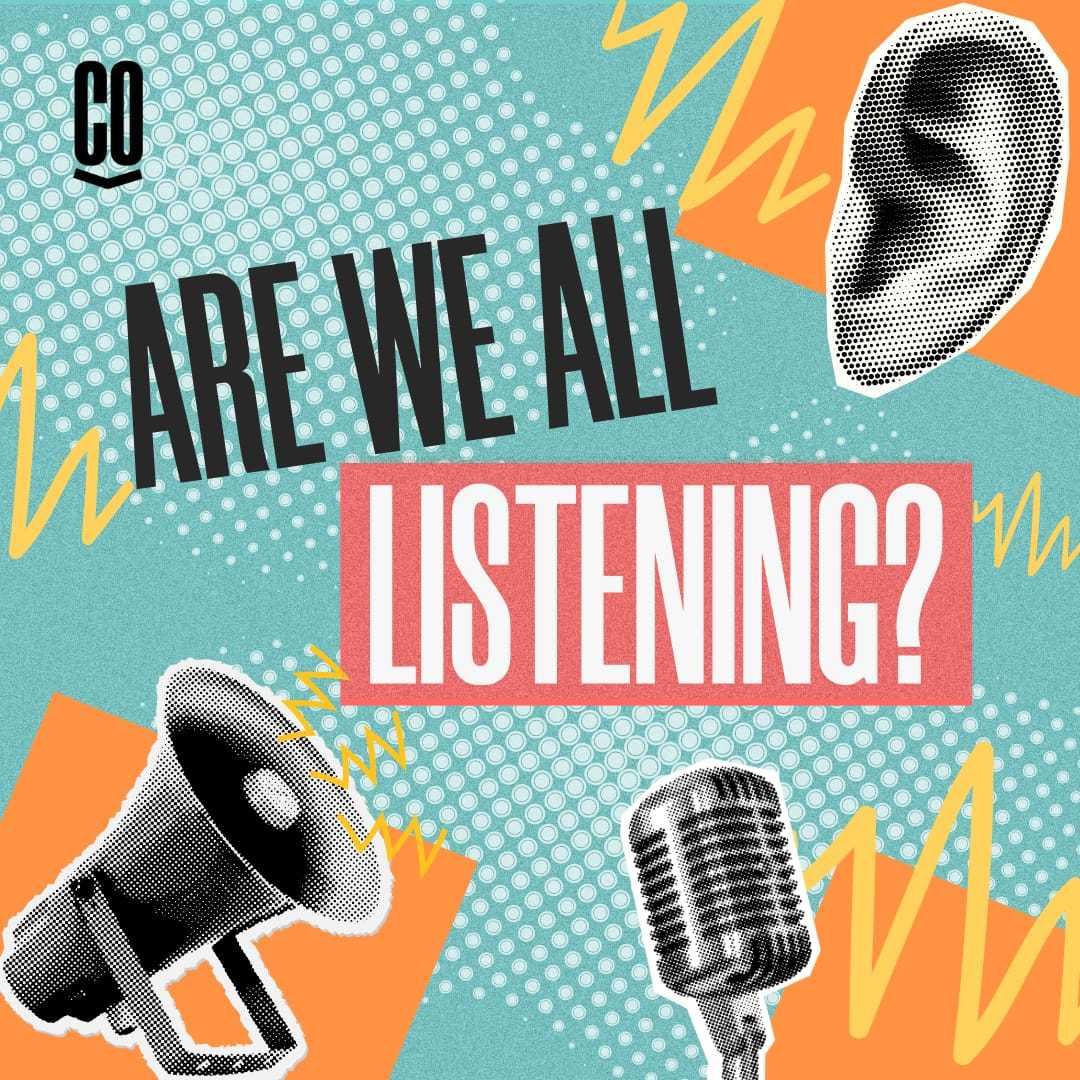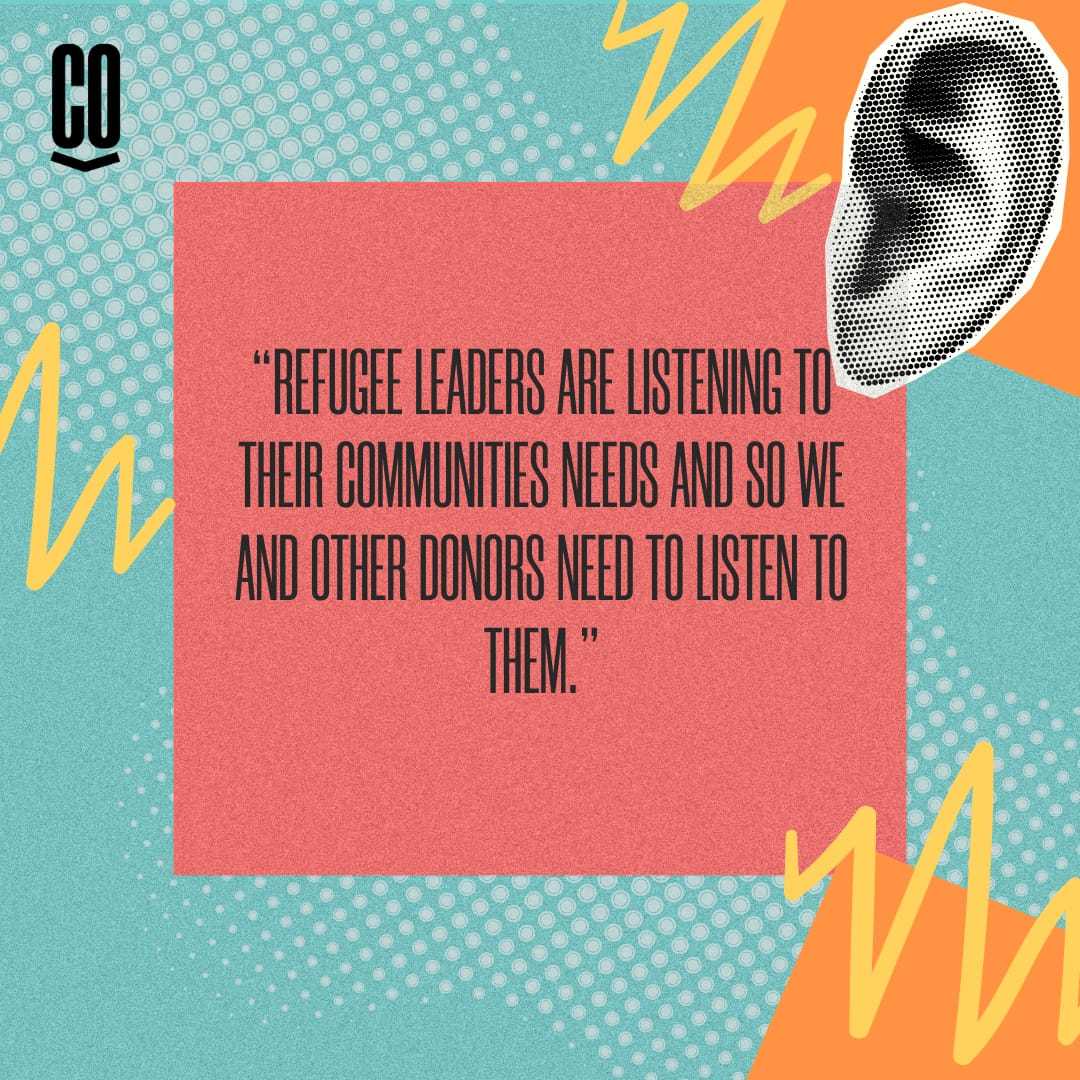ARE WE ALL LISTENING?
Thu, Jun 20, 2024
Read in 4 minutes
This World Refugee Week, as we confront staggering statistics and stories of displacement from across the globe, we are challenged to imagine a way forward and to consider how to adequately respond to the unprecedented numbers of displaced people, each one representing devastating individual experiences

The United Nations High Commissioner for Refugees (UNHCR) reported a grim milestone this week: over 120 million people are forcibly displaced globally as of May 2024. This figure marks the 12th consecutive year of increase, fuelled by conflicts in Sudan, Gaza, The Democratic Republic of the Congo, and Myanmar. As these numbers soar, the urgency to respond effectively to refugee needs is becoming all the more critical. Yet, as UNHCR warns, we are witnessing ‘apathy and inaction’. The war in Sudan is a case in point; it is now labelled ‘The Forgotten War’, despite a shocking 7.26 million people reportedly being displaced since the war started (IOM).
So, how do we overcome this apathy and inaction? In a series of candid interviews I recently conducted with members of the Cohere team about our work, I was struck by how many of my colleagues spoke of the integral role listening plays in being more empathetic, understanding and building human connections. Whether they are engaging with refugee leaders, advising donors, or partnering with organisations, the emphasis was consistently on acknowledging and paying attention to diverse voices. However, listening isn’t always easy. It requires more than passive attention—it demands a willingness to get uncomfortable, to confront biases, and to remain open to learning. Interestingly, these were also some of the barriers discussed around the shifting of power. As one Cohere team member reflected, “Sometimes it can be much harder to listen than to talk.” This sentiment resonates deeply in a sector where it often feels like those who should be listening are the ones doing the talking, and vice versa

The challenge extends beyond individual interactions to larger forums and conferences. Too often, those directly affected by refugee crises find themselves sidelined, while institutional voices dominate with pre-prepared, self-congratulatory speeches and predetermined agendas, rather than engaging in genuine dialogue. Recently, I attended a meeting on funding refugee organisations in Nairobi, which starkly highlighted this disparity. Donors monopolised the microphone, offering well-meaning but detached perspectives on timelines and procedures, failing to grasp the context and urgency on the ground. A token fifteen minutes was then allotted to the numerous refugee-led organisations in attendance to ask questions and raise concerns.

Two of the speakers had to leave early, and had no time to answer the queries posed to them. In such instances, it often seems that speakers are more focused on deflecting and diverting than on listening, as if defending their own decisions is more important than getting the decisions right.
While lip service has been paid to the idea of “meaningful participation”, with intent shown towards co-designing and including participatory approaches in programming, listening to the voices that matter has continued to pose a challenge. In these spaces, the perspectives of refugee leaders are sifted through to arrive at predetermined talking points that align with narratives that serve the agenda and interests of others. When refugee communities are asked for genuine input they often have to channel their collective views through a singular leader who is invited to a meeting. The leader is expected to represent the hopes and frustrations (whether aligned or divergent) of thousands of people and all their views.
In my opinion, in order for us to meaningfully grapple with the challenge of forced displacement, we must bridge this gap—listen to refugee communities - both leaders and the most vulnerable who will maybe never be leaders, amplify their voices, and let their experiences guide policy and practice. It’s about recognising that solutions cannot be imposed from above; instead, they must emerge from within communities themselves. They already are, if only we were all listening properly.
The journey towards meaningful change begins with listening and understanding, followed by dismantling the barriers that obstruct authentic dialogue and embracing discomfort as a catalyst for growth. For Cohere, this introspection fuels a commitment to challenging the status quo and advocating for a more inclusive humanitarian landscape.
Looking ahead, the imperative to listen remains pivotal. It’s not just about hearing voices but understanding the nuances of the narrative. By fostering environments where listening is valued as much as speaking, we pave the way for genuine understanding and sustainable change.
This World Refugee Day serves as a poignant reminder of our shared humanity and collective responsibility. As we navigate complex challenges and daunting statistics in a noisy and overwhelming world, it takes courage to listen. It is certainly easier to tune out than to cut through the noise to find connection and understanding, but I believe that is where we can find empathy over apathy, inspiring us into action. ARE WE ALL LISTENING?

Chrissie Thompson, Brand & Communications Director, Cohere